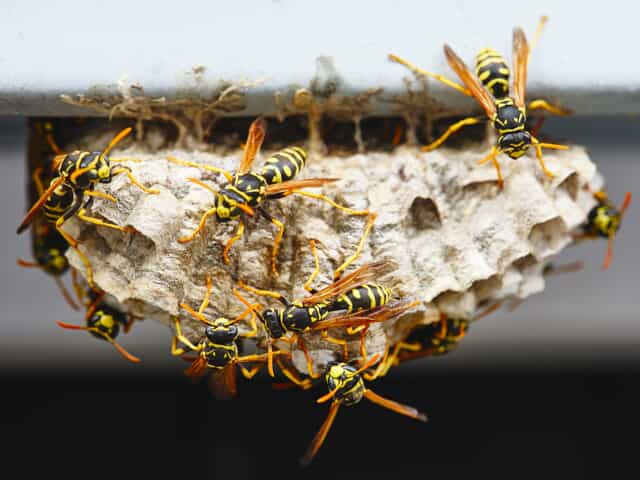When it comes to pests, wasps are not to be taken lightly. These buzzing insects can pose a significant threat to you and your family's safety. Understanding the potential dangers associated with wasps is crucial in order to take proactive measures to protect your loved ones. In this blog post, we will explore the various ways in which wasps can be dangerous and provide you with practical tips on how to mitigate these risks.
Aggressive Nature and Painful Stings
Unlike bees, wasps can sting multiple times without losing their stinger, making them a formidable adversary. When a wasp feels threatened or perceives danger, it will attack with great speed and aggression. This poses a significant risk, especially if you or a family member unknowingly disturbs a wasp nest.
A wasp's sting is not only painful but can also cause severe allergic reactions in some individuals. For those who are allergic, a wasp sting can lead to anaphylaxis, a potentially life-threatening condition that requires immediate medical attention.
Nesting Habits and Encroachment
Wasps build their nests in various locations, including trees, shrubs, under eaves, and even inside your home or garage. These nests can house hundreds, if not thousands, of wasps, creating a concentrated danger zone near your living space.
If a wasp nest is located near a frequently used area, such as a backyard, patio, or entrance, the risk of accidental disturbance increases exponentially. Children playing, unsuspecting guests, or even routine maintenance activities can unknowingly agitate the wasps, leading to swarming and stinging incidents.
Food Interference and Contamination
During late summer and early fall, wasps become more aggressive in their quest for food. They are particularly attracted to sweet substances, including sugary drinks, fruits, and even picnic leftovers. As they hover around food sources, wasps can intimidate and deter you and your family from enjoying outdoor activities and dining experiences.
Furthermore, when wasps contaminate food or beverages, they can introduce harmful bacteria and germs, increasing the risk of foodborne illnesses. This contamination can occur if a wasp lands on food or if someone accidentally swallows a wasp while consuming a drink or meal.
Psychological Impact and Anxiety
Living in an environment infested with wasps can lead to a constant state of anxiety and fear, especially for individuals who have previously experienced painful encounters. This fear can restrict outdoor activities, limit your enjoyment of your own property, and create a sense of unease even indoors.
The fear of wasp stings may also result in increased stress levels and decreased quality of life, affecting both your mental and physical well-being.
Protecting Yourself and Your Family
While wasps pose a significant threat, there are steps you can take to minimize the risks and create a safer environment for you and your family:
Regularly inspect your property for wasp nests, especially in potential nesting areas such as sheds, eaves, and tree branches. If you find a nest, contact a professional pest control service to safely remove it.
Keep outdoor eating areas clean and free of food debris. Use lids and covers for food and beverages to prevent wasps from being attracted to your meals.
Educate your family members about wasp safety and how to react if a wasp is encountered. Teach them to remain calm, move slowly and quietly away from the area, and avoid swatting or provoking the wasp.
Wasps pose a genuine threat to you and your family's well-being. By familiarizing yourself with the dangers they present and implementing preventive measures, you can significantly reduce the risk of encountering these aggressive insects. If you're dealing with a wasp infestation or require assistance, don't hesitate to reach out to Hoffer Pest Solutions. Our team is dedicated to keeping your home and loved ones safe from the dangers of wasps.


